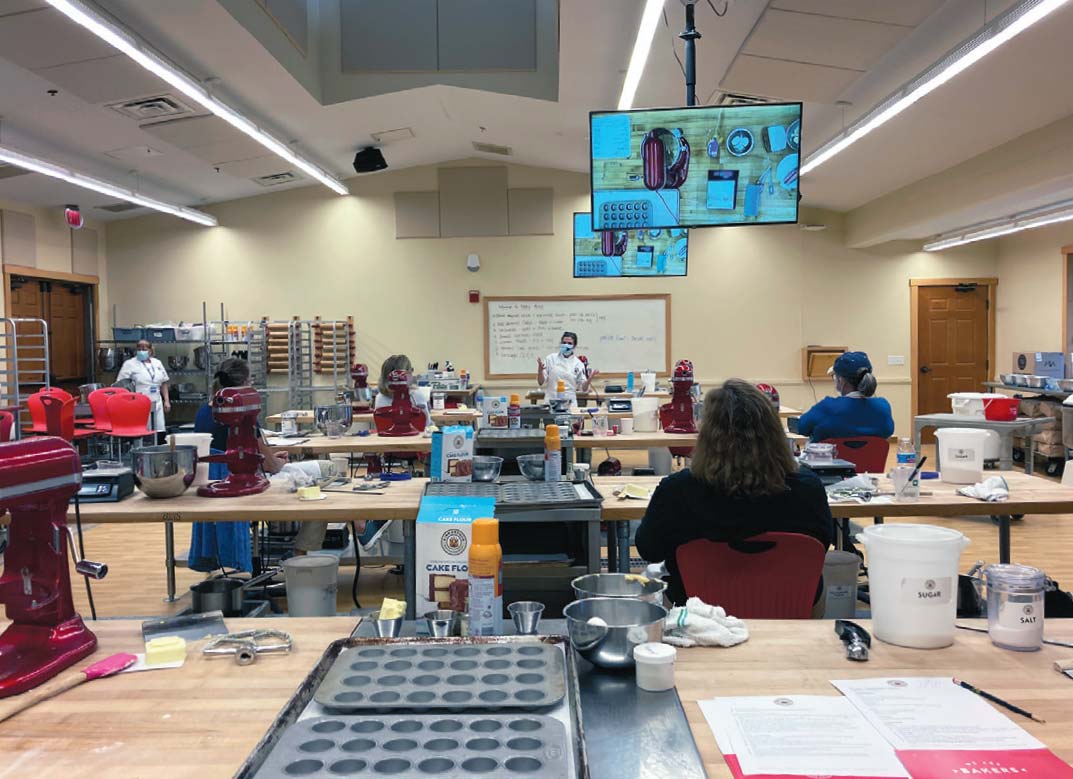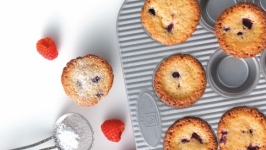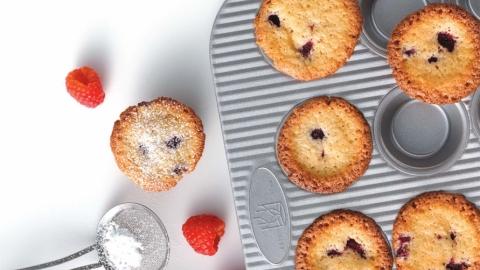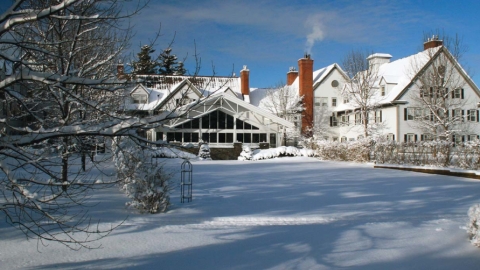KING ARTHUR BAKING SCHOOL: EMPOWERING BAKERS OF ALL LEVELS
“We want students to be engaged and get their hands in the dough. Our goal is to make the experience of baking approachable, enjoyable, and repeatable once the student returns home.” –Elisabeth Berthasavage
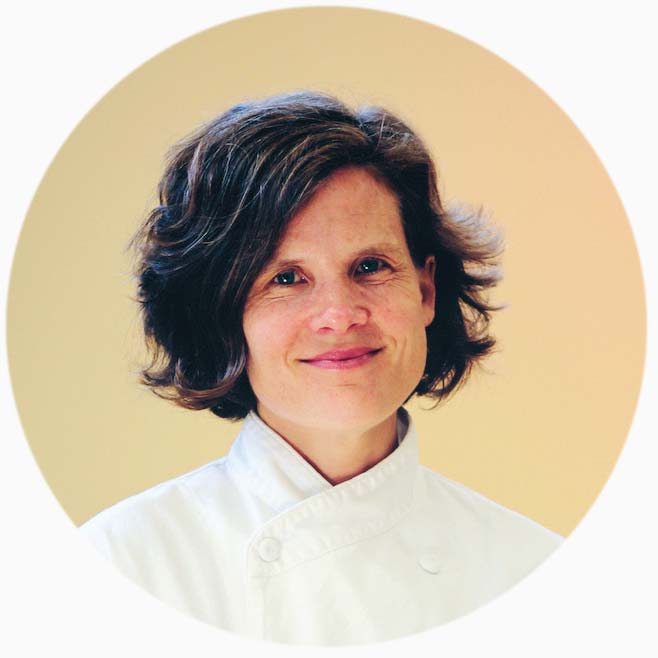
Elisabeth Berthasavage
“It’s a good day for baking!” Elisabeth Berthasavage, garbed in her white chef’s jacket and clogs, commenced class with those cheerful words as we students sat comfortably on our workstation stools, sipping coffee or water. Outside, precipitation fell from the steel-gray clouds, but inside, all was cozy and warm. We had an entire afternoon dedicated to baking—and eating!—pastry miniatures. Who cares about the weather??
My classmates that afternoon included two sisters who had flown in from New York and San Francisco to enjoy the class as part of a “sisterbonding week.” A pair of friends drove over from New Hampshire for the afternoon while yet another duo made the 7-hour trek from central Pennsylvania and planned a weekend around the class. My own bench-mate had spent the entire week at the Baking School, bringing the finished products back to her hotel each evening and sharing them with the staff. She flies from Chicago to Norwich every year for an immersion in as many classes as she can, a treat for her spirit.
Elisabeth has been a King Arthur baking instructor for 20 years. After earning her degree from the New England Culinary Institute, she worked as a pastry chef at several bakeries around Vermont, with cakes as her specialty. What drew her to teach at the legendary King Arthur Baking School? Being able to provide a hands-on experience for students. “As a school, education is our primary mission,” Elisabeth said. “We want students to be engaged and get their hands in the dough. Our goal is to make the experience of baking approachable, enjoyable, and repeatable once the student returns home.” She also values being able to build community through baking. “It’s an honor to witness how the activity of baking can be an equalizer and a bonding experience. Students often walk through the classroom door to escape life’s challenges for a few hours and to create and learn with their hands and hearts.”
From my own perspective, I came to the class as a decent home baker. However, putting myself in a situation where I was baking “on the clock,” with a prescribed curriculum and steps that needed to be completed in a timely fashion, I suddenly felt a little on edge. But I strapped on my apron, slugged back some coffee, fiddled with the stand mixer and digital scale, and got to work. Within minutes, I was deep in the baking school groove.
King Arthur classes run on the “demo, do; demo, do” model, where the instructor demonstrates several steps and techniques, then each student replicates the process at her own station. Above the instructor’s workspace in the front of the room hangs a large video screen that projects the action below so students have a clear, bird’s-eye view of the action. Throughout the demonstrations, Elisabeth offered pleasant explanations behind the intriguing why’s of baking, just enough to satisfy one’s curiosity without overwhelming.
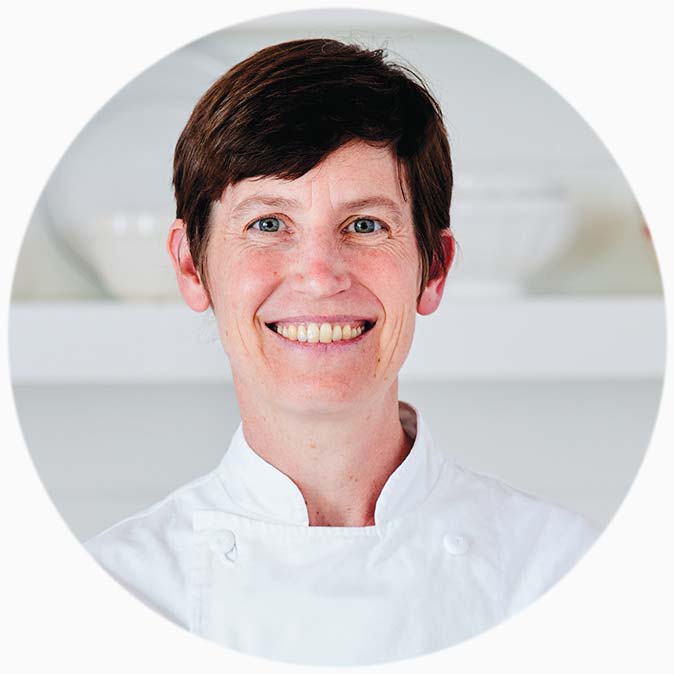
Amber Eisler
“Kids are awesome because they’re so open to learning! Unlike adults, they’re not afraid to try something new and to make mistakes.” –Amber Eisler
COMMITTED TO TASTY EDUCATION
Amber Eisler started in King Arthur’s production bakery in 2003 and eventually became an instructor. She now serves as the director of the King Arthur Baking School, following in the footsteps of founder Jeffrey Hamelman. (“Jeffrey was one of my instructors at the Culinary Institute of America.”) and Susan Miller, who oversaw the school from its September 2000 inception until June 2020. “Frank and Brinna Sands, fifthgeneration owners of King Arthur, were visionaries,” Amber noted. “They saw beyond flour and created a true baking company with a production bakery, retail store, café, and school.” King Arthur became 100 percent employee owned in 2004.
King Arthur Baking School has 15 instructors, with an average tenure of 15 years. More than 10,000 students participate annually in classes, both in-person and online. “Our mission is to educate and inspire bakers of all levels, from kids to professionals,” Amber explained. “Our instructors offer hundreds of classes, from 4-hour basics to multiday intensives.” The most popular introductory classes are Lofty Layers, Crafting Croissants, and Beauty and the Baguette. “Who doesn’t embrace the universal appeal of a buttery, flaky croissant or a crackly, crisp baguette?” Amber asked. “Our goal is to help people understand you can make these hallowed products by following a series of steps.”
The Baking School launched their Live Online Baking Classes in the summer of 2020. Response has been strong to these virtual classes as people can hone their skills in the comfort of their own kitchens.
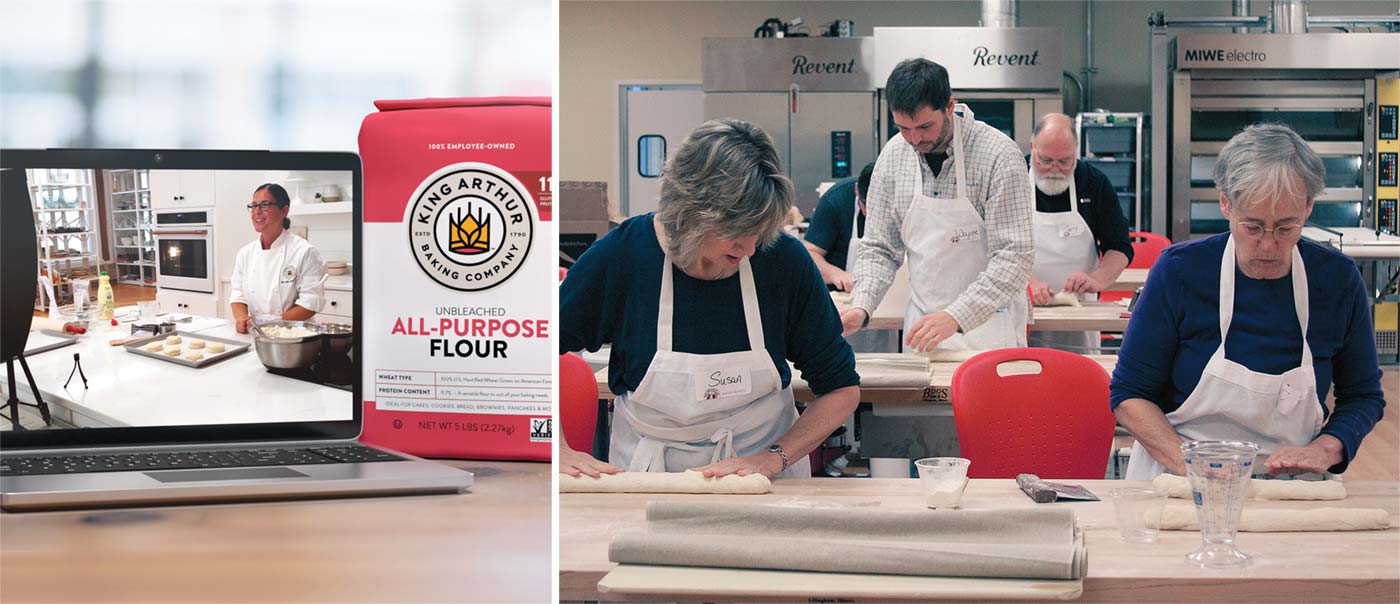
(left) Participating in an online baking class from home. (right) Diligent students roll fresh dough inside a King Arthur Baking School classroom.
The Baking School launched their Live Online Baking Classes in the summer of 2020. “We fast-tracked a massive curriculum development and built recipes around home kitchens and accessible ingredients,” Amber said. “Now we have a broad repertoire of classes tailored to work online and at home.” Response has been strong to these virtual classes as people can hone their skills in the comfort of their own kitchens.
Children’s classes are also available, although only online at this point. According to Amber, “Kids are awesome because they’re so open to learning! Unlike adults, they’re not afraid to try something new and to make mistakes. They take such pride in sharing what they made with their family. And they love putting their personalized creative mark on their baked goods. We run classes based around themes and holidays, and we make sure to have classes built in during school vacation weeks, which parents really appreciate.”
The class I took, Pastry Miniatures, made lemon curd mousse tartlets. We transformed half of the buttery shortbread dough into miniature tartlet shells, and then we worked a few drops of pure lemon oil into the remaining dough and rolled it into a log. After refrigerating the log until firm, we rolled it in a mixture of sparkling sugar and poppy seeds, cut the log into slices, and baked them to just-golden perfection. One dough, two different desserts! Our third creation was petite almond tea cakes, tender and subtly infused with flavor from almond paste. After the mini tea cakes had cooled, we dipped the tops in a confectioners’ sugar glaze enhanced with orange oil and added a few bits of chopped, candied orange peel. Perfection! Of course, everyone pulled out their phones and took photos of their baking masterpieces, which we carefully packed into cardboard bakery boxes to take home and share with friends. I walked back to my car feeling proud and accomplished. And slightly full.


